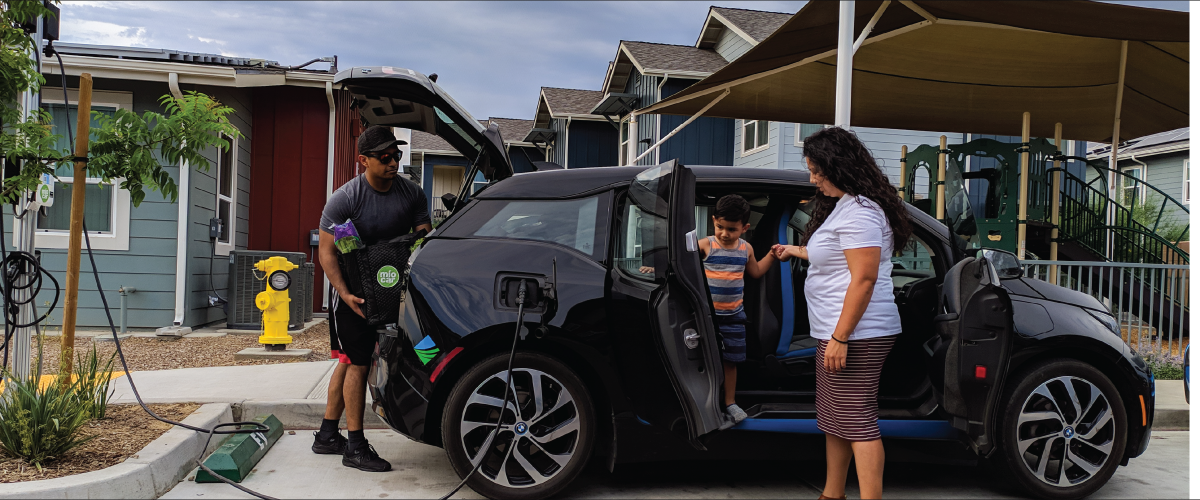This post was originally published on Legal Planet. Reprinted with permission.
This week, the D.C. Circuit hears three cases challenging the use of federal regulations to push adoption of electric vehicles and to allow California to forge a path toward zero-emission cars. If all three cases go badly, the regulatory system would be disabled from playing a role in this area. This would be a huge setback, though there are reasons to think that it would only delay, rather than prevent, the transition to clean cars.
Texas v. EPA
In this case, right-wing state attorneys general and fuel suppliers are suing to block the U.S. Environmental Protection Agency’s (EPA) regulations for greenhouse gases in motor vehicles, which were promulgated under the Clean Air Act. There are some serious arguments that none of the plaintiffs have standing, either because the effects on them are too uncertain and indirect, or because their injuries fall outside the zone of interests that are relevant to the Clean Air Act section involved in the case. There is also a pretty strong argument that the plaintiffs forfeited their claims because they failed to raise them in the rulemaking proceeding. The government has a fair chance of winning these claims.
On the merits, the plaintiffs have two interconnected claims. One is that the regulation presents a major question because EPA is seeking to increase the percentage of electric vehicles. The plaintiffs draw an analogy to West Virginia v. EPA, where the agency was trying to shift from coal to renewable energy. There are about a dozen differences between the two cases, however, which to my mind make the analogy pretty superficial.
The plaintiffs’ second claim is that the statute does not allow firms to average their emissions across different models of cars or store up credits in some years they can use in other years. EPA has allowed this for many years, and I think it’s unlikely the court is going to toss it out at this late date.
NRDC v. NHTSA
This case involves fuel efficiency standards set by the Department of Transportation — commonly known as CAFÉ standards. The issues here are pretty technical. The statute limits the agency’s ability to consider “alternative fuel vehicles” in setting the standard but allows them to be credited against other car models in determining whether the standard was set. Congress apparently intended to encourage alternative fuel vehicles this way — the agency would set tough standards for gas cars but then carmakers would have an incentive to experiment with alternative fuel vehicles to gain credits.
This all worked well when alternative fuel vehicles were a tiny, experimental niche, but not so well when their sales are rapidly expanding. Instead of acting as an incentive for more alternative fuel vehicles, at some point, the credits from EVs could simply swamp any mileage issues in gas cars, making the whole idea of fuel efficiency standards for gas cars a joke. The agency introduced some tweaks to deal with this problem, and the case is about the legality of those tweaks.
It’s hard for anyone but a specialist to assess these arguments. The guiding hand behind these standards was Ann Carlson, a once and future Legal Planet contributor. My guess that the court will rule for the government is mostly driven by my respect for her legal savvy.
Ohio v. EPA
This is a challenge to the waiver that EPA has given to California, which allows the state to set its own standards for greenhouse gases and other pollutants. The standing issues are similar to those in the previous case but arguably even stronger. Assuming the court doesn’t toss the case entirely, there are some nitpicky issues about the meaning of the Clean Air Act provision creating the waiver. However, the big issue is a claim that the provision is unconstitutional because it grants one state regulatory powers that it doesn’t give others.
There’s no basis in the text of the Constitution for this claim — on the contrary, the Constitution requires Congress to make some types of laws like bankruptcy uniform, but not laws like this one that are based on its power over interstate commerce. Moreover, the states are forced to jump through hoops to try to distinguish a bunch of other laws allowing some states but not all of them to regulate. For instance, Texas has a special statutory exemption from federal regulation of its electric power grid.
In addition, the natural remedy for the states’ complaint is to equalize the playing field by giving every state the power to set its own vehicle pollution standards. That’s absolutely the last thing that the states want. In fact, if they win, they will have even less ability to regulate than they do today, because they will lose the option of piggybacking on California’s standards and won’t be able to have their own standards at all.
This seems to be kind of a Hail Mary lawsuit, predicated on the idea that the Supreme Court will buy just about any legal theory that advances conservative goals. I think they’re overestimating the Court’s MAGAtude.

